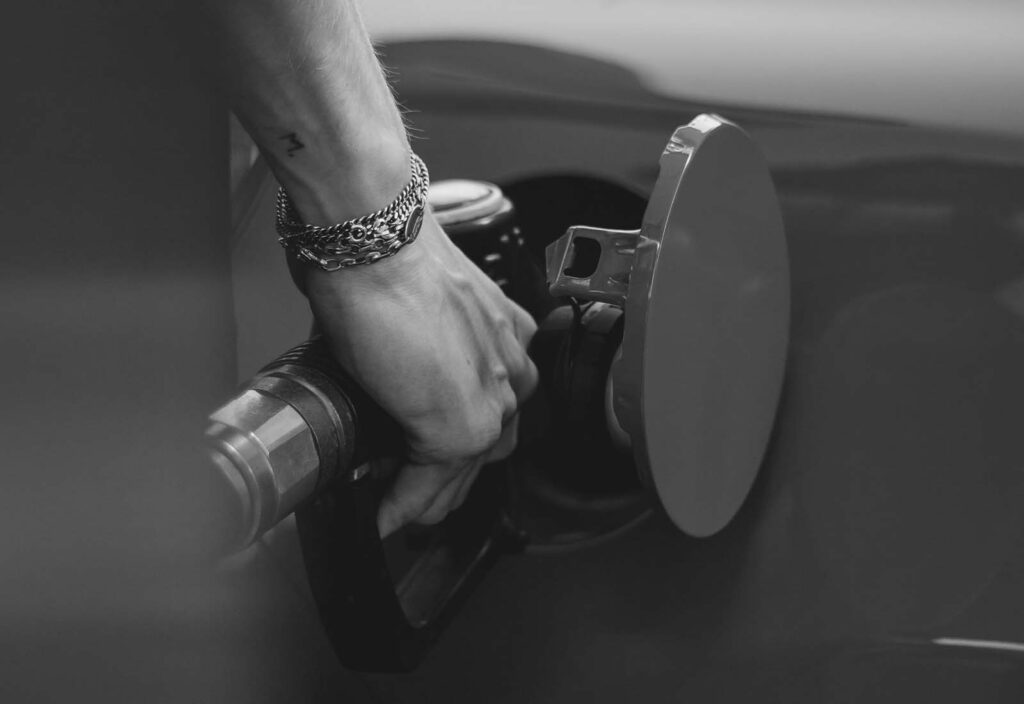
THE PUNCH RESOURCES
From Waste to Power: The Sustainable Journey of Used Cooking Oil into Biodiesel
Bali, Indonesia – November 8, 2023
Used Cooking Oil (UCO), typically generated from cooking or frying, is commonly encountered in the food industry, including restaurants, fast-food establishments, and households. UCO can manifest in various forms, encompassing vegetable oils like corn, canola, olive, and palm oil, as well as animal fats. The general rule is that it’s oil or fat left over from cooking, which should not be reused excessively.
In the world of sustainability and environmental conservation, even the most unexpected sources can hold incredible potential. One such source is Used Cooking Oil (UCO). Once relegated to the status of waste, UCO is now emerging as a valuable resource with the power to fuel a more sustainable future. Properly managing UCO is not just a matter of sustainability but also a crucial step toward reducing environmental impact and promoting a greener, more responsible culinary landscape.
Reusing your Used Cooking Oils (UCOs) for purposes beyond cooking is a practical and environmentally responsible approach. UCOs can find a second life in various applications, such as producing biodiesel, serving as a base for homemade soaps, or even contributing to the creation of eco-friendly candles. By repurposing UCOs, you not only minimize waste but also support sustainability initiatives, transforming what was once kitchen waste into valuable resources that benefit both you and the environment. This proactive approach aligns with the principles of a circular economy, where resources are reused and repurposed to reduce the strain on our planet’s ecosystems.
This eco-friendly alternative to traditional diesel fuel has gained recognition for its numerous environmental advantages.
What environmental advantages have propelled the recognition of this eco-friendly alternative to traditional diesel fuel?
Biodiesel is a type of renewable diesel fuel made from organic materials, primarily vegetable oils and animal fats, collectively known as feedstocks. While the concept of biodiesel may seem cutting-edge, its roots can be traced back to the late 19th century when inventor Rudolf Diesel envisioned a future where engines could run on a variety of fuels, including vegetable oil. Today, this vision has become a reality, with biodiesel serving as a cleaner and more sustainable alternative to petroleum-based diesel. UCO is one such feedstock that can be used to produce biodiesel. This eco-friendly alternative to traditional diesel fuel has gained recognition for its numerous environmental advantages.
Reduced Waste and Landfill Diversion
Recycling UCO into biodiesel is a sustainable practice that significantly reduces waste and prevents environmental hazards. When UCO is disposed of in drains or landfills, it can lead to blockages and contamination, posing challenges for waste management. By repurposing UCO, this waste is diverted from landfills, alleviating pressure on these already overflowing disposal sites. Furthermore, landfills are known to release harmful greenhouse gases during the decomposition process, so diverting UCO from such facilities contributes to reduced emissions and lessens the environmental burden.
Lower Emissions and Improved Air Quality
One of the primary environmental benefits of UCO recycling is the reduction of harmful emissions. Biodiesel produced from UCO burns cleaner and emits significantly fewer greenhouse gases and particulate matter when compared to traditional diesel fuels. This cleaner combustion contributes to improved air quality and helps mitigate the negative impacts of air pollution on human health and the environment. By choosing biodiesel derived from UCO, we take a step towards a greener and healthier future.
Energy Independence and Security
The use of biodiesel made from UCO enhances energy independence for a nation or region. By producing a portion of its fuel domestically from renewable resources, a country can reduce its reliance on imported fossil fuels. This not only bolsters energy security but also decreases vulnerability to global oil price fluctuations and supply disruptions. The sustainable cycle of UCO recycling into biodiesel not only benefits the environment but also strengthens a nation’s energy sovereignty.
Local Economic Growth and Job Creation
The recycling of UCO supports the growth of local industries, particularly in the biodiesel production sector. This practice contributes to economic growth by fostering small- and medium-sized businesses specializing in biofuel production. Additionally, the increased demand for UCO collection and processing services results in job creation at various levels of the supply chain. Therefore, UCO recycling isn’t just environmentally responsible; it also acts as an engine for local economic development and employment opportunities.
Promoting Sustainable Agriculture and Food Security
Utilizing non-edible feedstocks like UCO for biodiesel production plays a role in promoting sustainable agriculture and food security. When food-related oils and fats are used for biodiesel, there is potential for competition with food production and concerns regarding the use of agricultural land. By focusing on non-edible feedstocks like UCO, we reduce the pressure on arable land and ensure that essential crops are allocated for food production. This, in turn, contributes to global food security and a more sustainable approach to biofuel production.

How is the process of biodiesel production carried out?
Biodiesel production primarily involves a chemical process called transesterification, which transforms the feedstock into biodiesel and glycerin. The most commonly used feedstock for biodiesel production includes soybean oil, canola oil, palm oil, and used cooking oil. The feedstock is combined with an alcohol, typically methanol or ethanol, and a catalyst such as sodium hydroxide. Through this process, biodiesel is separated from glycerin, resulting in a fuel that can power diesel engines with minimal modifications.
Collection
After use, UCO is collected from households, restaurants, and other sources. This step is crucial in diverting UCO from improper disposal.
Purification
Collected UCO goes through a purification process to remove impurities, food particles, and contaminants. This purification ensures that the UCO is suitable for conversion into biodiesel.
Conversion
The UCO is subjected to a chemical process called transesterification. During this process, the oil is mixed with alcohol and a catalyst to produce biodiesel and glycerin. The resulting biodiesel is comparable in composition to traditional diesel fuel.
Quality Control
Stringent quality control tests are conducted to ensure that the produced biodiesel meets industry standards and is safe for use in vehicles.
EXPLORE THE PUNCH

